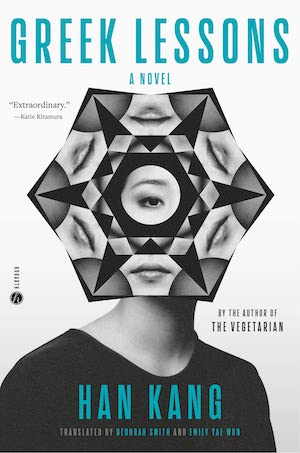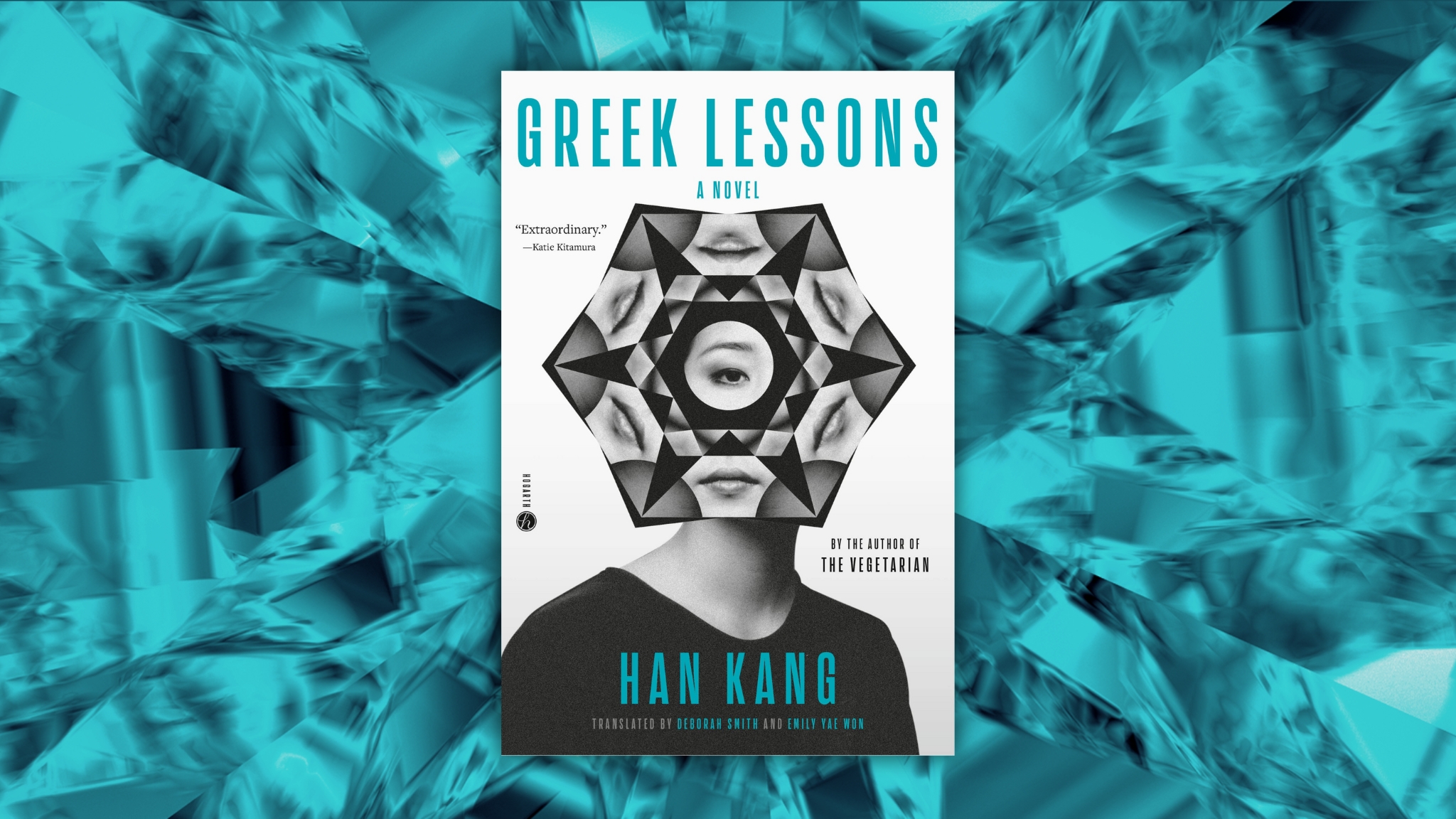Greek Lessons by Han Kang
Han Kang’s Greek Lessons (Hogarth) is another extraordinary display of prose coupled with an unsettling, yet deeply resonate, narrative. This meditative novel is an exploration of language and empathy that examines our connection to the world and one another.
The narrative itself is quite straightforward — a young woman who has seemingly lost her ability to speak is using Greek language lessons as a catalyst to hopefully rediscover her voice. Simultaneously, we meet a middle-aged man who is reminiscing on his past as we learn that he is slowly yet steadily going blind and has been his entire life. Soon it is revealed that this man is none other than the Greek language teacher himself.
As the chapters go by, each relatively brief and typically alternating between perspectives, we learn much about these two seemingly mundane individuals. We’re privy to the past traumas that shaped their worldviews; how the woman copes with the knowledge that she almost wasn’t born and the man with his own deep desire for love and acceptance. We’re shown the recent losses each has had to contend with; for her, a divorce and loss of custody of her child and for him, the death of a dear yet estranged friend. However, and perhaps most importantly, we learn of their initial experiences losing both their voice and sight.
For the woman, it first happened in her youth when her voice was suddenly inaccessible to her — effectively cutting her off from language and connection. For the man, he learned as a boy that he, like his father, would one day lose his sight entirely — similarly hindering his ability to connect and communicate with the world around him. This betrayal of their own bodies affects each differently, causing them to cope and interact with the world in unique ways in order to protect the semblance of connection that remains. Still, while they may react differently and their exact conditions aren’t the same, there is something eerily mirrored in the ache they feel. It is here, in this undefined yet prescient ache that Kang’s signature brilliance shines through and she arrives at the humanity which is often buried within her novels.
In many ways, this is a story of loss, connection and unrequited love. The initial loss is evident as it’s the impetus for the very plot. Still, underneath the obvious layer of loss — the absence of voice and steady decay of vision — is the deeper loss of connection to other people, the world and themselves. It is through language the woman understands her place in the world and it’s her primary mode of connection. After the man learns of his vision diagnosis, his very ability to see and feel seen is threatened. If language is how we communicate and sight is how we empathize, what happens when two people come together where one of each is missing?
Greek Lessons is not a novel that you blaze through in a weekend but rather it’s a gorgeous piece of writing that you sit with it. It’s a moment in time that reaches deep inside and allows the reader to examine their own relationship with language, sight and communication. Ultimately, we’re shown through Han Kang’s pages how empathy and connection persist and are intrinsically human.
Han Kang was born in 1970 in South Korea. A recipient of the Yi Sang Literary Award, the Today’s Young Artist Award, and the Manhae Prize for Literature, she is the author of The Vegetarian, winner of the International Booker Prize; Human Acts; and The White Book.
Deborah Smith was a co-winner of the International Booker Prize for her translation of The Vegetarian.
Emily Yae Won is a translator based in Seoul. She has translated into Korean the work of Ali Smith and Deborah Levy.

Publish Date: April 18, 2023
Genre: Fiction
Author: Han Kang
Page Count: 192 pages
Publisher: Hogarth
ISBN: 9780593595275






















:quality(85):upscale()/2024/04/17/850/n/1922564/beb2b9e3662021fd3d3e45.26287469_.jpg)





